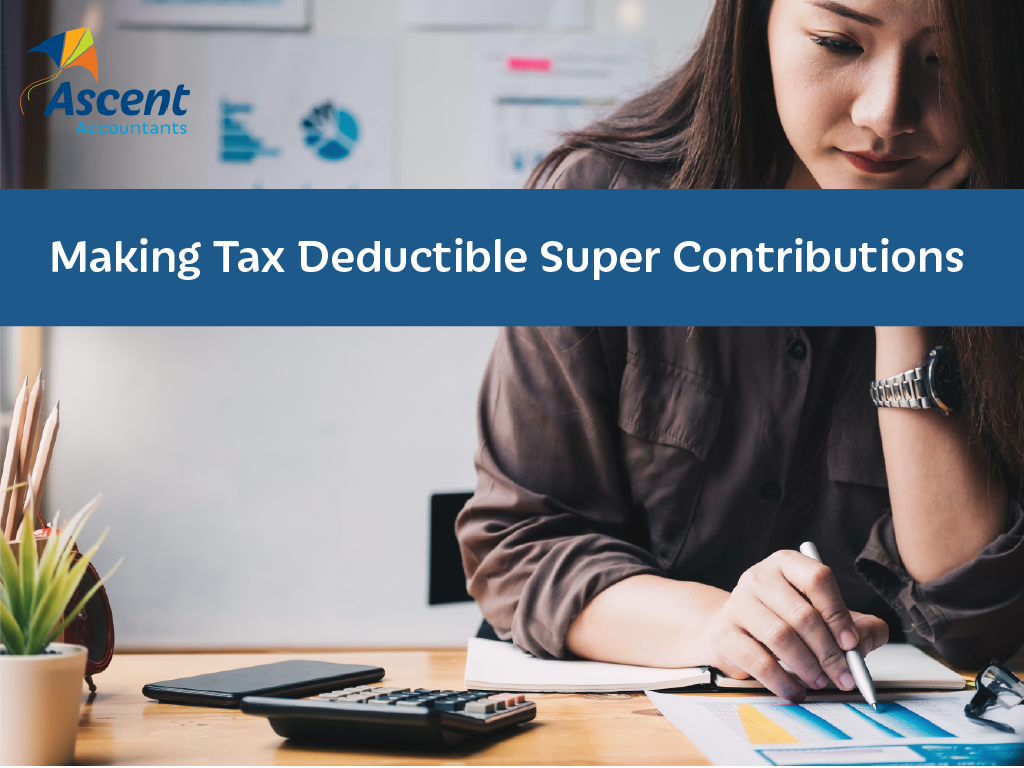Making Tax Deductible Super Contributions

Contributions limits
Contributions limits, also known as “contributions caps”, limit the tax concessions you can claim — if you contribute too much, you might have to pay extra tax and an additional charge. The cap amount depends on your age, salary, and contributions.
- Before-tax (concessional) contributions including employee contributions are capped at $25,000 per annum. This will change from July 1, 2021, to $27,500 per annum.
- The tax payable on concessional contributions depends on your taxable income.
- People with a taxable income (including super) of more than $250,000 a year or more pay 30%.
- After-tax contributions: Non-Concessional tax is payable on amounts up to $100,000 a year (or $300,000 over three years). Your total super balance must be less than $1.6 million. From July 1, 2021, this Non-Concessional cap increases to $110,000 (or $330,000 over three years).
How to contribute
If you want to boost your super, contributions can be done as an individual tax deductible super contribution or by salary sacrificing through your workplace (keeping your individual cap in mind).
Individual tax-deductible contributions
You are eligible to claim a deduction for personal super contributions if you meet the age restrictions, have given your fund a Notice of intent to claim or vary a deduction for personal contributions form (NAT 71121), and your fund has validated your notice of intent form and sent you an acknowledgement. You also need to ensure contributions to your fund was not a:
- Commonwealth public sector super scheme in which you have a defined benefit.
- Constitutionally protected fund (CPF) or other untaxed fund that would not include your contribution in its assessable income.
- Super fund that notified us before the start of the income year that they elected to either treat all member contributions to the super fund as non-deductible or defined benefit interest within the fund as non-deductible.
Salary sacrificing
When you could ask your employer to pay some of your usual salary directly into your super account, instead of your bank account, this is salary sacrificing. Money paid into your super account by your employer is taxed at 15% — much lower than the usual rate.
For example, let’s say you earn $60,000 per year and your employer puts in 9.5% super ($5,700 per year). You decide you’d like to boost your super by salary sacrificing, and ask your employer to also pay a portion of your salary into your super rather than your bank account. Instead of the 34.5% tax you normally pay (income tax plus Medicare levy), this part of your income is only taxed at 15%.
With a contribution cap of 25,000/pa — remember, $5,700 has already been paid by your employer in this scenario — you can salary sacrifice up to $19,300 more per year at the 15% tax rate.
Two heads are better than one
With new restrictions and changes coming in every year, it can be difficult to make tax deductible super contributions without a professional guiding you. We can help — contact us today to get started, explore your options, and get more for your super.
Need help with your accounting?








